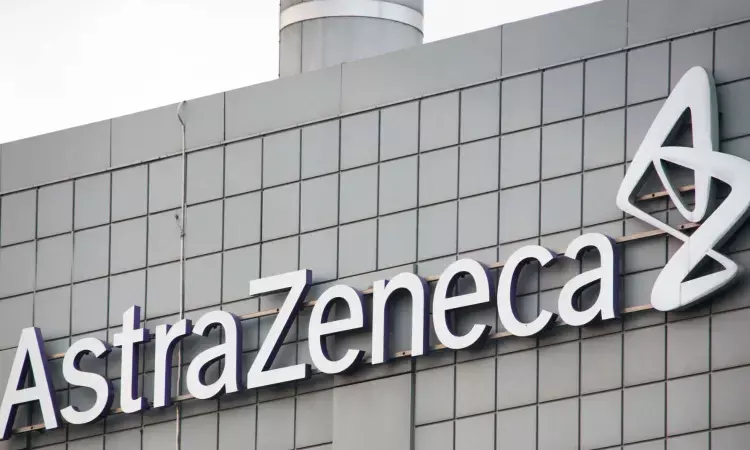- Home
- Medical news & Guidelines
- Anesthesiology
- Cardiology and CTVS
- Critical Care
- Dentistry
- Dermatology
- Diabetes and Endocrinology
- ENT
- Gastroenterology
- Medicine
- Nephrology
- Neurology
- Obstretics-Gynaecology
- Oncology
- Ophthalmology
- Orthopaedics
- Pediatrics-Neonatology
- Psychiatry
- Pulmonology
- Radiology
- Surgery
- Urology
- Laboratory Medicine
- Diet
- Nursing
- Paramedical
- Physiotherapy
- Health news
- Fact Check
- Bone Health Fact Check
- Brain Health Fact Check
- Cancer Related Fact Check
- Child Care Fact Check
- Dental and oral health fact check
- Diabetes and metabolic health fact check
- Diet and Nutrition Fact Check
- Eye and ENT Care Fact Check
- Fitness fact check
- Gut health fact check
- Heart health fact check
- Kidney health fact check
- Medical education fact check
- Men's health fact check
- Respiratory fact check
- Skin and hair care fact check
- Vaccine and Immunization fact check
- Women's health fact check
- AYUSH
- State News
- Andaman and Nicobar Islands
- Andhra Pradesh
- Arunachal Pradesh
- Assam
- Bihar
- Chandigarh
- Chattisgarh
- Dadra and Nagar Haveli
- Daman and Diu
- Delhi
- Goa
- Gujarat
- Haryana
- Himachal Pradesh
- Jammu & Kashmir
- Jharkhand
- Karnataka
- Kerala
- Ladakh
- Lakshadweep
- Madhya Pradesh
- Maharashtra
- Manipur
- Meghalaya
- Mizoram
- Nagaland
- Odisha
- Puducherry
- Punjab
- Rajasthan
- Sikkim
- Tamil Nadu
- Telangana
- Tripura
- Uttar Pradesh
- Uttrakhand
- West Bengal
- Medical Education
- Industry
AstraZeneca switching to biogas to cut US carbon footprint

London: Drugmaker AstraZeneca is switching to biogas produced from cow manure and food waste in the United States, it said on Tuesday, in a deal to cut its carbon emissions there.
The Anglo-Swedish drugmaker said the long-term agreement with Massachusetts-based Vanguard Renewables would enable it to transition to biogas from natural gas and cut its emissions across its U.S. research and manufacturing sites.
"Doing the right thing costs a little bit more, but it is not punitive," said Pascal Soriot, chief executive of AstraZeneca, which makes 26 medicines in the U.S.
Given the easy availability of natural gas in the U.S., the price of biogas is relatively much higher, Soriot said, as well as being less competitive than it is in Europe.
Manure from three farms, which each have about 900 cattle, will be combined with food waste and placed in an area the size of a big ice skating rink with apparatus above to capture methane, which will purified and piped into AstraZeneca's gas grid, said Andy Wirths, its SVP of supply for the Americas.
The heating and cooling processes used in the making of pharmaceutical ingredients can be energy intensive and by the end of 2026, AstraZeneca said, the deal will produce as much as 650,000 million British thermal units per year, equivalent to the energy needed to heat more than 17,800 U.S. homes annually.
An analysis published in November found the carbon output of THE global pharmaceutical and biotech industry eclipsed emissions from the forestry and paper sector.
AstraZeneca aims to reduce greenhouse gas emissions it directly produces by 98% by 2026, from a 2015 baseline.
However, much of the global pharmaceutical and biotech industry has yet to set targets for reducing carbon emissions in line with the Paris Agreement, researchers have found.
Read also: AstraZeneca Soliris approved in China for adults with refractory generalised myasthenia gravis
Ruchika Sharma joined Medical Dialogue as an Correspondent for the Business Section in 2019. She covers all the updates in the Pharmaceutical field, Policy, Insurance, Business Healthcare, Medical News, Health News, Pharma News, Healthcare and Investment. She has completed her B.Com from Delhi University and then pursued postgraduation in M.Com. She can be contacted at editorial@medicaldialogues.in Contact no. 011-43720751


